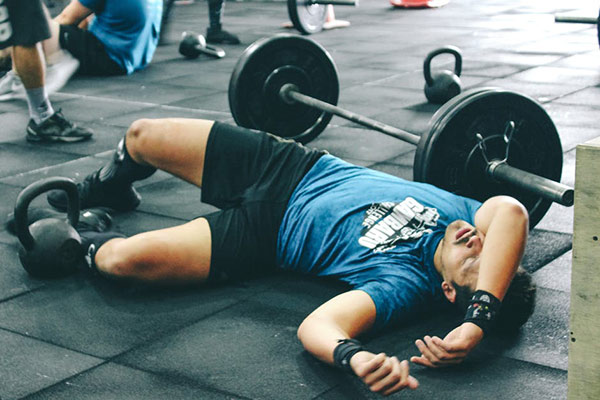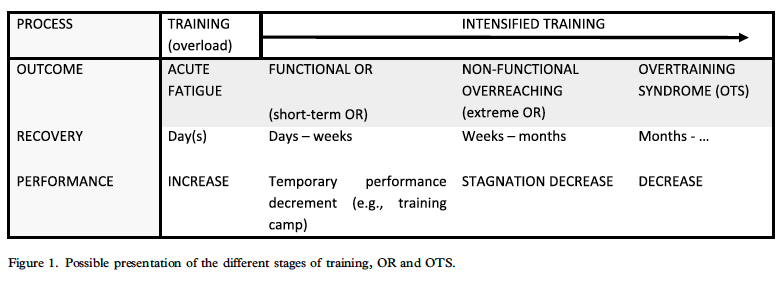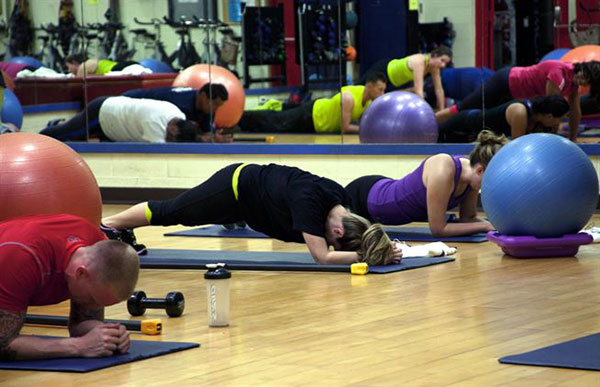Key tips to avoid overtraining!
Do you want to improve your fitness but not burnout? Key tips to avoid overtraining!
Overtraining – what is it?
From my time working with a wide-range of sporting athletes – weekend warriors through to semi-professional, it is apparent that many injuries I see coming into the clinic stem from training loads – be they too large, too small, or increased too fast. With this in mind, I thought it was time to have a discussion around what the research literature is defining as over-training, and some general tips around how to avoid it and risking injuring.
In whatever exercise you are undertaking, according to a Joint consensus statement from the European College of Sport Science (ECSS) and the American College of Sports Medicine (ACSM) on the prevention, diagnosis and treatment of overtraining syndrome:
TRAINING can be defined as a process of overload that is used to disturb homeostasis, which results in acute fatigue leading to an improvement in performance.
Layman’s terms: “training is when you work hard, feel fatigue, your body adapts, and as a result get better at what you are doing”
The key components of training are volume/duration, frequency, and intensity of training sessions. These components make up the training stimulus or load – changing these will alter the outcome: hopefully to increase performance.
Optimal training is achieved when an athlete progressively overloads, and positive physical adaptation takes place to gradually increase capacity and performance.
Overtraining and Over-Reaching
Over-reaching is an accumulation of training and/ or non-training stress resulting in short-term decrement in performance capacity with or without related physiological and psychological signs and symptoms of maladaptation in which restoration of performance capacity may take from several days to several weeks.
In short, over-reaching is when stresses on the body combine to cause performance to drop for a SHORT period: signs and symptoms of the body not coping may not be apparent.
Over-reaching can be further defined into:
- short term or functional over-reaching – where training can result in short-term drop in performance before seeing an increase after recovery (think intensive training camp), and
- long-term or extreme over-reaching – where training results in long-term drop in performance, which may take weeks or months to resolve.
Furthermore, over-training syndrome is described as a long-term drop in performance in conjunction with related physiological and psychological changes. Take a look at the chart below for further explanation.
When training and life stressors are of a greater intensity than what the body can cope with, performance and the body’s ability to deal with training loads can decrease.
5 most common signs of overtraining:
Scientists have identified more than 130 signs of overtraining, including increased heart rate, changes in blood levels, hormone imbalances, and weakened immune response. But unless you are somehow having your bloods and hormones regularly monitored, you may not realise that you’re training too much until injury takes place.
However, the most common signs of over-training are:
1. Altered resting heart rate: Altered resting heart rate is the result of an increased metabolic rate to meet the imposed demand of training.
2. Performance decrements: You keep training – but your performance stagnates, or gets worse. This is the most common sign of over-training.
3. Psychological disturbance: Increased fatigue and decreased enthusiasm.
4. Insomnia: When you exercise too much your body can see this as a stressor, releasing hormones like cortisol that can cause restlessness and insomnia as well as fat retention.
5. Frequent sickness: Upper respiratory tract infections are common in the over-trained athlete. When you’re constantly training, your body expends all its energy repairing and rebuilding your muscles and has almost nothing left to fight infections and bacteria.
When someone presents in an over-trained state, on taking their history there may be several confounding factors present, such as:
- Inadequate nutrition (usually not enough KJs, or poor carb intake)
- History of viral illness
- Psychosocial stressors (can be related to work, team, coach, family, general life!)
- History of sleep disorder
How to prevent overtraining?
Change gradually
The most common rule out there is the 10% rule – ie. don’t increase your training load more than 10% per week. As we discussed earlier, the key components of training load are volume/duration, frequency, and intensity of training sessions. There are a few variables there, and the 10% rule may seem very simplistic – but keep it simple and use the 10% rule as a general guide. So changing volume, frequency and intensity gradually (and slowly) will aid in your body adapting to increasing load.
Other variables also play a role – think running. A change in shoes, running surface, hills, style will all change the load going through the body. The body will need time to adapt to any change in the variables.
Rest and recovery
Be sure to rest enough (both physically and mentally). Training everyday can be ok, as long as there is variability in what you are doing – but I find scheduling rest days to be particularly important: give the body (especially tendons) and mind time to recover between training. Sometimes a two week break to recuperate will see greater benefits later in the training year.
Have a plan
Have some form of training plan – use this to monitor load and progress volume/duration, frequency, and intensity of your training. It will help the training to be more consistent. Don’t be always strict with your plan: allow flexibility! Life happens, trying to always be super-strict with a training programme while dealing with everything else that life throws at us can lead to mental fatigue especially.
Change it up
Training the same way every time will place the same load on the same structures. Differing routines will change the load on your body, and can also keep you mentally fresh! Take running for example – if you always run on the road, try a gentle trail run. Physio Jim Fuller has written an article on the benefits of trail running here.
Think of yourself
Have an attitude of looking after yourself. Don’t always be a slave to the training numbers, eat healthy, drink plenty of water, sleep and remember that life stressors are often a considerable contributing factor to the development of overtraining syndrome.
Overtraining Quiz
This was developed by Jack Raglin, Ph.D., a researcher on sports psychology and professor in the kinesiology department at Indiana University in Bloomington, USA. He thinks an athlete’s psychological state is a better diagnostic tool than physical factors.
Aim to take this quiz once a week. A score of 40 or more means you should rest more and train less. Scoring 15 or less suggests you’re balancing your training and recovery well. A score that falls in the middle isn’t of immediate concern, but should be monitored. He recommends looking out for dramatic score changes – if the score spikes, it’s time to take a break from training.
-
How is your mood today?
Very, very good (-2 points)
Very good (-1 point)
Good (0 points)
Average (1 point)
Bad (3 points)
Very bad (5 points)
Very, very bad (7 points) -
How many hours did you sleep last night?
More than nine (-1 point)
Eight or nine (0 points)
Seven (1 point)
Five to six (3 points)
Less than five (5 points) -
Last night I slept:
Same as normal (0 points)
One hour more than normal (1 point)
Two or more hours more than normal (3 points)
One hour less than normal (1 point)
Two hours less than normal (3 points)
Three or more hours less than normal (5 points) -
Have you been sick the past week?
Yes (5 points)
No (0 points) -
How would you rate yesterday’s workout?
Very, very easy (-3 points)
Very easy (-1 point)
Easy (0 points)
Average (1 point)
Hard (3 points)
Very hard (5 points)
Very, very hard (7 points) -
How do your muscles feel?
Very, very good (-3 points)
Very good (-1 point)
Good (0 points)
Tender, but not sore (1 point)
Sore (3 points)
Very sore (5 points)
Very, very sore (7 points)7. Do your legs feel “heavy”?
No (0 points)
A little (1 point)
Somewhat (3 points)
Very (7 points)
Download the Overtraining – Quiz
References:
Meeusen R, Duclos M, Foster C, Fry A, Gleeson M, Nieman D, Raglin J, Rietjens G, Steinacker J, Urhausen A (2013). Prevention, diagnosis, and treatment of the overtraining syndrome: joint consensus statement of the European College of Sport Science and the American College of Sports Medicine. Med Sci Sports Exerc. 45(1):186-205.
https://www.runnersworld.com/running-tips/are-you-running-too-much
Main, L.C., Dawson, B., Grove, J.R., Landers, G., & Goodman, C. (2009). Monitoring training distress: changes in perceived stress and inflammatory cytokines. Research in Sports Medicine, 17, 121-132.
Main, L.C. (2009). Psycho-biological monitoring of health and performance among endurance athletes. PhD Thesis (online).
https://info.publichealth.indiana.edu/faculty/current/raglin-john-s.shtml
Brukner P, Khan K. 2007. Clinical Sports Medicine (3rd Ed). McGraw-Hill, Sydney.



